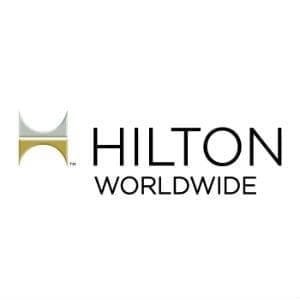 Over the years and in various roles I found myself in serious disagreements with a hotel brand’s development and feasibility group. Sure, we all wanted to grow the business by opening new lodging products within our areas of responsibility. In fact, it was kind of a race from region to region and brand to brand to see who could grow the fastest.
Over the years and in various roles I found myself in serious disagreements with a hotel brand’s development and feasibility group. Sure, we all wanted to grow the business by opening new lodging products within our areas of responsibility. In fact, it was kind of a race from region to region and brand to brand to see who could grow the fastest.
Conflicting monetary incentives between developers and operators
The fundamental problem was that at times our monetary incentives were in conflict. The development group was incentivised based on new units in the ground and the operators were incentivised based on unit performance over the course of time.
At a certain level, the developer had no vested interest in the actual hotel operating results after the deal was signed and the hotel was initially opened. Once the agreements were signed, the developer’s bonus was locked in and they moved on.
To compound the problem, the feasibility group who produced the hotel’s financial projections often reported to development.
The paycheck incentive is subject to self-interest
Of course there were also significant shared growth goals. We all realized that growth of our brands in the region was good for our careers. We knew that raising the brand flag in prime locations was fundamental to continued growth opportunities for business. We also new that great performing assets and happy owners created repeat customers and conversely that losing a flag due to non-performance was really bad PR.
So for the most part we worked well together and grew our family of brands within the region at an accelerated pace. However, the paycheck incentive is often the one that draws the self-interest and over the years, there was fault on both sides.
This is much the same as back in the day when a major portion of the Chef’s bonus was based on food cost and front of the house operators were largely incented on top line revenue and customer satisfaction – a classic hospitality conflict of interest.
Lessons learned: real-life examples
When checks and balances fall apart, the results can have a negative impact on all stakeholders:
#1 Property on a smallish Caribbean island
In one case there was a 500+ room property on a smallish Caribbean island with limited airlift and limited tourism infrastructure.
The island was attempting to transition from an agriculture economy to tourism and the property was heavily subsidized by the local government. Against the better judgement of my team, we were encouraged to buy into the hype and future financial projections.
Twenty years and several ownership workouts later, the island is just now coming into its own. Everyone would have been better off if this project never materialized and/or was delayed for at least a decade and appropriately downsized.
#2 International resort should have been regional resort
In South America, what should have been built on a small scale as a regional resort was pitched as an international resort.
To get to the resort from the US or Europe you had to fly into the country’s international airport, take a 2 hour domestic flight and then drive for 2 hours. The international business never materialized and within five years the destination was under water and we had lost the flag – there were no winners.
Without the involvement of the international brands (and we weren’t the only international brand), this project probably would have been downsized, moved forward as a regional resort and been successful over time.
#3 Caribbean Resort on an established island
In another case, there was a Caribbean resort on an established island with reasonable airlift and tourism infrastructure. Unfortunately, the resort was oversized for the destination and on the opposite side of the island from the airport (50 minute drive) and the entertainment district.
The brand’s development group, without consultation from operators, had negotiated a RevPar Performance test based on a competitive set of their own brand hotels on other Caribbean islands – established products in prime locations with good airlift. Both the financial projections and the performance test were far too aggressive – the bar was too high.
The brand lost the flag before the end of their second full year of operation. Had a responsible operator been involved in the development negotiations, the property size, financial projections and the RevPar test would have been flagged and potentially the original brand would still be managing the resort.
#4 Brand growth slowly suffocating the asset
Today we have brand proliferation. By creating all the different the makes and models within the brand portfolio, brands have essentially eliminated territorial restrictions.
The problem is the brand business pipeline is only so big and the brand promise of delivering a healthy percent of overall business will fall short if there are too many flags in the market from the same brand. I recently saw this in a mid-sized US market. What was once a performing asset is now struggling to achieve an 80% RevPar Index and to meet loan obligations.
Over the past several years, the brand has opened or contracted for two select service hotels, two soft brand hotels and one full service hotel – and there were already three existing flags in the market from this brand. Brand growth is slowly suffocating the asset. Where is the developer and brand responsibility to this asset and its owner?
These are just my examples and I’m sure any experienced operator you speak to will have a few of their own examples. In fact, I spoke briefly to a friend of mine and he immediately sited two examples that had a lasting impression on him:
- To close a deal and without consultation, developers agreed to a reduction in the capital reserve escrow. A few years later when the hotel needed a rooms redo, there were insufficient funds in the reserve. The brand CEO was not pleased when he was told about the escrow reduction and the fact that it was done without executive approval.
- To finance a deal for a Convention Hotel in a second tier convention city, the financial proforma had average rates comparable to top tier convention cities. When he raised concerns from an operations perspective that the average rates were unachievable, he was overruled in the name of growth. Over the years, owner returns have been significantly below what was promised in the proforma.
Corporate oversight for responsible growth
We aren’t talking about hotel projects that didn’t reach stabilized performance as quickly as normally expected, but over time performed well and met both brand and owner expectations. We are talking about short term decisions with long term consequences that negatively impact the brand and owners – not to mention the hit the operator takes for the non-preforming asset and the hotel employees whose earnings suffer.
Theoretically, there is a system of corporate checks and balances. However, the system is failing in many instances due to inherent conflicts of interest which tend to cloud the long-term perspective. The system needs to be enhanced with less emphasis on pure growth/the numbers game, more involvement of the hotel operators, and more corporate oversight from the top down.
Operators should have the authority to review and approve financial proformas based on real world potential for success. They should also review and approve meaningful impact studies (not the one generated to appease other owner complaints) on existing product, review and approve key contract terms, and have the opportunity to have a seat and an equal voice at the Development Committee table.
On occasion, it may be appropriate to invite a third party objective critique of proformas and impact studies.
Owners should be granted escape clauses in their hotel management and hotel franchise agreements when it is clear that brand proliferation is penalizing their asset.
Corporate oversight needs to take the long term perspective and make the right call – responsible growth.
Who benefits from responsible growth?
Responsible growth is a win/win for all stakeholders – owners, developers, operators, hotel staff and the brand. The first priority should be happy owners and that must include existing owners who may suffer if the brand overbuilds the market. Happy owners will reinvest with the brand and provide invaluable word of mouth advertising.






























